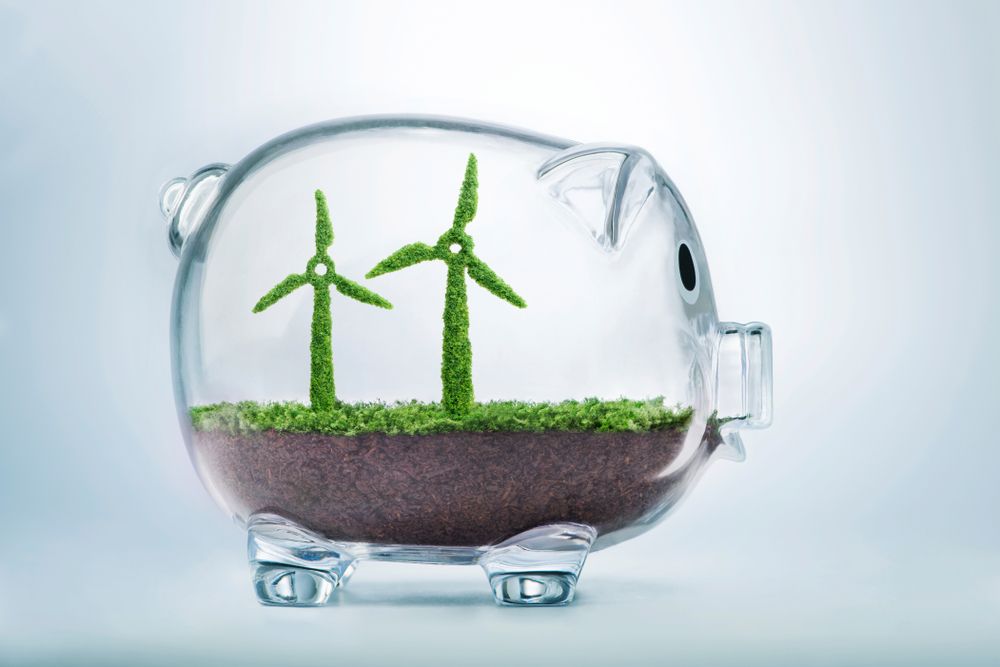
Climate change is a formidable challenge facing our planet, and the financial sector, particularly banks, play a crucial role in addressing this global issue. As stewards of capital and intermediaries in the global economy, banks have a significant influence on how resources are allocated. By embracing green financing and sustainable practices, they can direct funds towards environmentally friendly projects and companies, thereby promoting the transition to a low-carbon, sustainable economy. In this article, we’ll explore the multifaceted ways in which banks are contributing to the fight against climate change and how their efforts are shaping a greener future.
Pioneering Green Finance Products
Green finance is no longer a niche market; it has become a vital component of many banks’ portfolios. Innovative financial products, such as green bonds and sustainability-linked loans, are emerging as powerful tools for climate action. Green bonds are designed to raise capital specifically for projects with environmental benefits, such as renewable energy installations, energy-efficient buildings, or clean transportation systems. These bonds offer investors a way to contribute to environmental projects while receiving a financial return, effectively aligning financial goals with climate action.
Sustainability-linked loans, on the other hand, are a newer concept where the interest rates are tied to the borrower’s achievement of predetermined sustainability performance targets. This incentivizes companies to improve their environmental footprint as it has a direct impact on their borrowing costs. As banks continue to develop and promote these green finance products, they are enabling a growing number of projects that directly contribute to reducing greenhouse gas emissions and promoting environmental sustainability.
Banking on Renewable Energy Investments
The shift from fossil fuels to renewable energy sources is a critical component in the fight against climate change. Banks are increasingly recognizing the importance of supporting this transition. They are doing so by financing renewable energy projects such as wind farms, solar parks, and hydroelectric facilities. These investments are not only environmentally responsible; they also make good business sense as the world moves towards renewable energy sources and the costs of these technologies continue to decrease.
Beyond direct financing, banks are also divesting from fossil fuel projects and setting targets for renewable energy investments. Some banks have made public commitments to phase out financing for coal-fired power plants and other high-carbon industries. By reallocating their assets towards renewables, banks can facilitate a shift in the energy landscape and support the development of a resilient and sustainable energy infrastructure.
Promoting Sustainable Practices in Lending and Operations
Banks have the unique ability to influence their clients’ business practices through their lending policies. By incorporating environmental, social, and governance (ESG) criteria into their lending decisions, banks can promote sustainable practices across various industries. This includes evaluating the potential environmental impacts of the projects they finance and prioritizing those that contribute positively to the environment.
Furthermore, banks are focusing on their own operational sustainability. This involves reducing their carbon footprint by investing in energy-efficient buildings, reducing waste, and encouraging sustainable practices among employees. By leading by example, banks can demonstrate the practicality and benefits of sustainable operations, inspiring clients and other businesses to follow suit.
Fostering Collaboration for Climate Action
Combatting climate change requires a concerted effort from all sectors of society, and banks are well-positioned to foster collaboration among various stakeholders. They can bring together governments, businesses, and investors to finance large-scale climate initiatives. Public-private partnerships, for example, are essential in funding infrastructure projects that might be too risky or large for the private sector to handle alone.
Banks also play a key role in developing and endorsing industry standards and guidelines for sustainability, such as the Principles for Responsible Banking under the United Nations Environment Programme Finance Initiative (UNEP FI). These principles encourage banks to align their business strategies with societal goals, such as those outlined in the Paris Agreement and the Sustainable Development Goals (SDGs).
Educating Stakeholders on Climate Risks and Opportunities
As climate change poses both risks and opportunities to the financial sector, banks have a responsibility to educate their stakeholders about these issues. They can provide valuable insights into how climate risks can affect financial performance and stability, and how to mitigate these risks through strategic investments and business practices.
Additionally, banks can highlight the economic opportunities presented by the transition to a low-carbon economy. This includes the potential for job creation in renewable energy sectors, growth in green technologies, and the development of sustainable infrastructure. By educating clients and investors about these opportunities, banks can catalyze the flow of capital towards climate-positive endeavors.
The role of banks in fighting climate change is multifaceted and increasingly critical. Through the pioneering of green finance products, investment in renewable energy, promotion of sustainable practices, fostering of collaboration, and education on climate risks and opportunities, banks are uniquely positioned to lead the charge towards a sustainable future. As the world continues to grapple with the effects of climate change, the actions of the banking sector will play a decisive role in either propelling us forward or holding us back. By choosing to finance a greener future, banks can ensure that their legacy is one of stewardship and responsibility, benefiting both the planet and their bottom lines.
